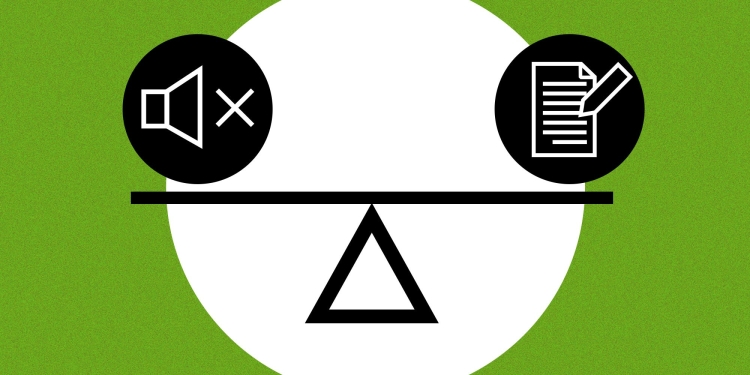A silent meeting is worth a thousand words
Building a culture where all thoughts can be voiced (or written as the case may be).
Picture this: a room full of senior Square leads, gathered for an important review meeting. Everyone is looking at their computer, in complete silence, interrupted by bursts of clickety clack. 30 minutes later, the conversation starts.
What is going on? Is everyone waiting for the meeting to start? Are they practicing some form of silent retreat microdosing?
It turns out, this is simply how we work. Alyssa Henry, our VP of Seller, popularized at Square a modified version of this practice from Amazon. In a nutshell: the group in the meeting reviews a Google Doc in silence, asking and answering questions via Google Doc comments. After 30 minutes of this, we’ve identified key points that need to be discussed in person, and can then have a short, focused conversation. More importantly, we’ve given everyone a chance to be heard. As she says below, we’re building a culture where thoughts can be voiced (or written as the case may be) without worrying about someone talking over you.
Alyssa wrote about the rationale behind this practice, and gave me permission to share it here:
What’s up with Google docs & silent reading / commenting instead of presentations in meetings with Alyssa?
Short answer: Inclusion, transparency, scalability, and speed
Long answer: Lots of research says that minorities, women, remote employees, and introverts are talked over in meetings and/or have trouble getting their voice heard in traditional meeting culture. It sucks not only for the people that are disempowered by the traditional approach, but it sucks for those that unintentionally talk over/shut down conversation, and sucks for leaders that want to hear the best ideas but can’t because folks are being shut down — usually unintentionally.
I want to build a culture where thoughts can be voiced (or written as the case may be) without worrying about someone talking over you. I want a culture where it’s not the loudest voice heard, or the most politically adept, or the most local to SF, but the most right. I want a breadth of thought — and debate. I want a culture where (selfishly as a leader) all voices are heard and thoughts debated and considered.
By writing things down it’s easier to share with a much broader audience and it’s easier for all “voices” to be heard via comments. It’s scalable. You all get to see the bi-quarterly discussion docs. Not only do you get to read everything that those attending the meeting read, but you also get to see all of the Q&A. This means that even if you aren’t in the meeting, you can add a comment or reply to a comment. It’s an opportunity for a broader audience to be involved and contribute. It’s intended to be empowering. With a slide deck, you wouldn’t hear the talk track, the Q&A, nor would you have the opportunity to reply to or add a comment. With the doc, you have this opportunity even after the the meeting.
We all have different interests — even within Square. What I want to fast forward through, pause, or rewind on may be different than what you want to fast forward through, pause, or rewind. Presentations don’t enable this diversity of interest or speed. They are slow and least common denominator. Our time is the most precious thing we all have. I want us all to be able to use our time focusing on and contributing to the things that interest and matter to us. That’s what teamwork is. We’re not all the same and shouldn’t be.
The first time I went through such a meeting, it felt a little bit odd, but I quickly realize how much more we were getting done in the same amount of time. This works well with any kind of group review. Give it a go.




